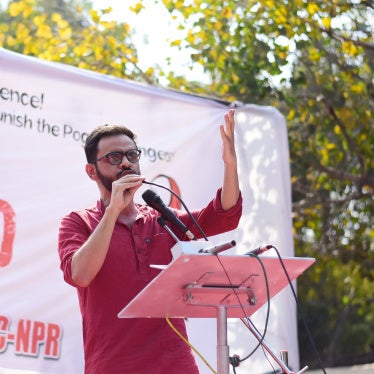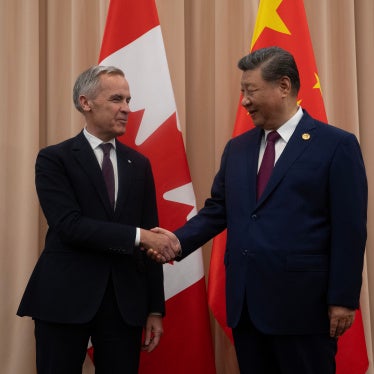Human Rights Watch welcomes the release before completion of their sentences of a number of people convicted on politically-motivated charges for their non-violent exercise of their human rights. They include Nguyen Huu Cau (released on March 21), Nguyen Tien Trung and Vi Duc Hoi (both released on April 12). Another political prisoner, Dr. Cu Huy Ha Vu, was temporarily released on April 6, 2014 for medical treatment in the United States. However, we but cannot but recall that none of them should have been imprisoned in the first place, and regret that in some cases their release only came after many years of detention under often brutal conditions. One, Dinh Dang Dinh, died on April 3, 2014, shortly after release.
Viet Nam accepted some recommendations on freedom of expression, association, assembly, religion, labor rights, land tenure rights, and the right to a fair trial. However, the sad reality is the government of Viet Nam continues to systematically violate rights in such vital areas. The government imprisons critics, such as human rights, land rights, and democracy activists, including members of recently-founded civil society organizations. We believe it is currently holding 150-200 people because of the exercise of their fundamental human rights. They should all be released and we deeply regret that the government of Viet Nam rejected calls to do so.Viet Nam should also completely end administrative detention without trial and the imposition of forced labor upon drug users and alleged drug users without any due process for so-called “labor therapy.”
Viet Nam accepted recommendations to guarantee freedom of expression on the Internet and to allow bloggers, journalists, other internet users and non-governmental organizations (NGOs) to promote and protect human rights. However, these pledges contrast with the reality on the ground. Faced with increasing use of the Internet as a medium for non-violent criticism and questioning of government policies and practices, the government has particularly targeted bloggers for repression. On May 5 this year, it arrested Nguyen Huu Vinh (also known as Ba Sam) and Nguyen Thi Minh Thuy. Like so many others before them, they have been charged under penal code article 258, which provides for up to seven years in prison for “abusing democratic freedoms.” During the first five months of 2014, at least seven other people were convicted in politically motivated trials under article 258. This provision and others used to repress the exercise of human rights, such as penal code articles 79, 87, 88, 89, 91 and 245 and Internet-regulation Decrees 72 and 174, should either be repealed or substantially revised to bring them in line with international human rights standards. Bluntly rejecting calls to repeal these abusive provisions puts in question the sincerity of general pledges to protect free expression.
Viet Nam had failed to fulfil many promises made in 2009. If it wants to engage constructively in its UPR, the government of Viet Nam should stop sending flawed messages that repressive laws and detention of critics are its responses to peaceful demands for fundamental human rights.







